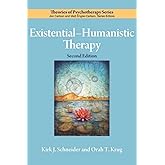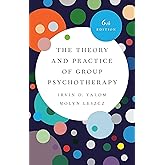All good!

Download the free Kindle app and start reading Kindle books instantly on your smartphone, tablet or computer—no Kindle device required.
Read instantly on your browser with Kindle for Web.
Using your mobile phone camera, scan the code below and download the Kindle app.

Follow the author
Something went wrong. Please try your request again later.
OK
Practising Existential Therapy: The Relational World Hardcover – 8 December 2014
by
Ernesto Spinelli
(Author)
Sorry, there was a problem loading this page.Try again.
{"desktop_buybox_group_1":[{"displayPrice":"$186.90","priceAmount":186.90,"currencySymbol":"$","integerValue":"186","decimalSeparator":".","fractionalValue":"90","symbolPosition":"left","hasSpace":false,"showFractionalPartIfEmpty":true,"offerListingId":"UD5l9RdSoxbqA1tYVn1dV3AD6KaUhgYhXTFTZ5aEWdd3rXqIafKlwWaazJvyTODAA3wqj7LD3ke7FyWws%2BCUBZrcT59NJgsYAM%2FnzwiAHO2%2FpcIlob9EbavpvMCc4h0iLyw8TDQ0h5y1xD0KGdZUbUQRbzGHodmxsj%2BVwi4FfWeSU9DZ4%2BNbrTABoX27jOXh","locale":"en-AU","buyingOptionType":"NEW","aapiBuyingOptionIndex":0}]}
Purchase options and add-ons
Drawn from the author's experience as an internationally recognized theorist, lecturer and practitioner, this practical book on existential therapy elucidates this notoriously difficult and distinctly different therapeutic approach to counselling and psychotherapy. Balancing theory and practice, the book is now substantially updated with extensive re-writes made to Part One and extensive edits made to Part Two. Each part is also now prefaced by a schematic overview, introducing the content and guiding readers through each chapter.
- ISBN-101446272346
- ISBN-13978-1446272343
- Edition2nd ed.
- PublisherSage Publications Ltd
- Publication date8 December 2014
- LanguageEnglish
- Dimensions17.27 x 2.03 x 24.64 cm
- Print length288 pages
Customers who viewed this item also viewed
Page 1 of 1 Start againPage 1 of 1
Product description
Review
In a survey of over 1,000 existential therapists worldwide, Practising Existential Psychotherapy was identified as themost influential contemporary text on existential therapeutic practice. In this second edition, Spinelli has deepened and extended his analysis, providing a comprehensive, detailed, and eminently practical guide to existential therapeutic work. This book is now the core text for training and practice in existential counselling and psychotherapy.
About the Author
Professor Ernesto Spinelli has gained an international reputation as one of the leading contemporary trainers and theorists of existential analysis as applied to psychology and psychotherapy and, more recently, the related arenas of coaching and conflict mediation. He is a UKCP registered existential psychotherapist, a Fellow of the British Psychological Society (BPS) and the British Association for Counselling and Psychotherapy (BACP) as well as an accredited executive coach and coaching supervisor. In 1999, Ernesto was awarded a Personal Chair as Professor of psychotherapy, counselling and counselling psychology. Ernesto is Director of ES Associates, an organisation dedicated to the advancement of psychotherapy, coaching, and supervision through specialist seminars and training programmes. Professor Ernesto Spinelli has gained an international reputation as one of the leading contemporary trainers and theorists of existential analysis as applied to psychology and psychotherapy and, more recently, the related arenas of coaching and conflict mediation. He is a UKCP registered existential psychotherapist, a Fellow of the British Psychological Society (BPS) and the British Association for Counselling and Psychotherapy (BACP) as well as an accredited executive coach and coaching supervisor. In 1999, Ernesto was awarded a Personal Chair as Professor of psychotherapy, counselling and counselling psychology. Ernesto is Director of ES Associates, an organisation dedicated to the advancement of psychotherapy, coaching, and supervision through specialist seminars and training programmes.
Product details
- Publisher : Sage Publications Ltd; 2nd ed. edition (8 December 2014)
- Language : English
- Hardcover : 288 pages
- ISBN-10 : 1446272346
- ISBN-13 : 978-1446272343
- Dimensions : 17.27 x 2.03 x 24.64 cm
- Best Sellers Rank: 986 in Social Work (Books)
- 1,223 in Social Services & Welfare (Books)
- 1,569 in Psychotherapy Textbooks
- Customer Reviews:
About the author
Follow authors to get new release updates, plus improved recommendations.

Discover more of the author’s books, see similar authors, read book recommendations and more.
Customer reviews
4.6 out of 5 stars
4.6 out of 5
55 global ratings
How are ratings calculated?
To calculate the overall star rating and percentage breakdown by star, we don’t use a simple average. Instead, our system considers things like how recent a review is and if the reviewer bought the item on Amazon. It also analyses reviews to verify trustworthiness.
Top reviews from Australia
There are 0 reviews and 2 ratings from Australia
Top reviews from other countries
 AnonReviewed in the United Kingdom on 26 May 2015
AnonReviewed in the United Kingdom on 26 May 20155.0 out of 5 stars Relatedness in Existential Therapy
Verified PurchaseThis excellent book is essential reading for therapists of all orientations. Its wisdom will give depth to the practice of any therapist and its compelling arguments will challenge and bring fresh perspectives on relatedness in every way. This book has great strength both in its conceptual framework and its practical applicability. A book to be cherished in which the author's voice speaks with clarity and courage challenging dominant mainstream perspectives.
While Spinelli's contribution in this second edition spans his tripartite foundational principles of Existential Therapy - Relatedness, Uncertainty, and Existential Anxiety, I will focus on the first of them - Relatedness, which in my opinion takes the discourse on relatedness to a far deeper level than the first edition of this book.
The first edition was a comprehensive and illuminating text on practising from an existential perspective, and very welcome, this second edition, substantially changed including the title change from to 'Psychotherapy' to Therapy', is commendable in taking a plunge into the deeper waters of relatedness and bringing to the reader a compelling depth of wisdom of relatedness of parts and whole through analogies such as 'A cup of Being Tea: An Analogy of Relatedness'.
The reader is asked to imagine a cup of 'being tea' from which all beings emerge. Each spoonful 'bit' of being tea that is investigated is unique and when returned to the cup of tea, it cannot be replicated in being exactly the same as any individual 'bit' of tea that came before it or comes after it. Nor is any individual 'bit' of tea more of 'being tea' or less of 'being tea' than any other 'bit' of tea. In this analogy, Spinelli asks us to see that - 'Every 'bit' of being tea is unique, and every 'bit' of being tea is the being tea.' Spinelli asks us to reflect on this proposition that if every 'bit' of being tea was to declare that in its uniqueness it was separate and without any relational connection to every other 'bit' of being tea, it would allow itself to forget or deny its relational source.
This above analogy is not unlike the one that Zen Master Thich Nhat Hanh speaks of in relation to waves and water. Each wave is different and unique. Yet each wave is also water.
In using this analogy, Spinelli challenges the dominant current individualistic notions and viewpoints of existence, that assert an 'individually derived, separatist subjectivity'. Indeed, what Spinelli is asking us as therapists to recognise is relatedness where 'seemingly separate beings exist only because of a foundational precondition of relatedness.' This is a highly refreshing perspective given the individualistic focus of many contemporary therapeutic models.
Drawing from Gergen, Spinelli calls us to view being not only as 'boundaried' or 'bounded' in its individual expression, but also asks us to see its fundamental relational attunement. This stance asks us to see the meaning of relatedness not only within relationships - whether desirable or not - but rather irrespective of the kind of relationship it is, it is always an expression of relatedness.
Inspired by Gergen's notion of 'relational being' to replace the notion of 'bounded being', Spinelli points out the 'co-constituted' nature of self, rather than self as a fully separate self. The notion of self as a 'thing-based' noun is replaced by a flow-like, process-like verb in movement in a process of becoming. Spinelli writes - 'Like the waves of an ocean, it is not clear where one movement ends and another begins.'
These notions on relatedness have resonances in the Buddhist notion of no separate self and in its deep wisdom in the recognition of inter-relatedness as a given.
Drawing our attention to the implications of relatedness as an a priori condition of relationships in psychotherapy, Spinelli points to the work of Martin Buber, contrasting 'I-It' relationships and 'I-Thou' relationships. In 'I It' relationships, the other is experienced as an object to be fixed, where the I imposes its preferred meaning stance. Whereas in an 'I Thou' relationship, the I approaches the other as an inter-related, subject-subject relationship, where meaning is co-created, where there is mutuality, and unpredictable meaning possibilities emerge between persons. If in 'I It' relationships, I objectifies both the I and the other, in 'I Thou' Relationships, I and the other as Thou co-exist and are inseparable in inter-relatedness, where meaning is not handed down, or pre-determined, but is co-created, in which there is inclusion of the other, reciprocity and mutuality.
Elaborating on the notion of 'relational being', Spinelli points to the notions of worlding and world-view. He refers to being - always- in - the - process - of - becoming as 'worlding' having the characteristics of a process-like, ever-shifting, pre-reflective, verb-like, no-thing-ness, which is not a substance or thing, and incapable of being expressed directly as it is pre-reflective. It can only be pointed towards. On the other hand, when existence is experienced reflectively, it can be expressed linguistically, it becomes a thing-like substance, and hence separate and distinct, while still being relational, it is expressed as constructs like self, other, world. This noun-like substance appears 'thing-based'. Spinelli refers to its structural appearance as 'world-view' that retains a 'fixedness', a stability in time and space.
The inter-play between worlding and world-view brings with it all the structural stability and certainties of world-view, and all the fluid, flux, change, movement, uncertainty, instability, and meaninglessness (i.e. meaning yet to be formed in world-view) of worlding. In engaging the reader in this inter-play with worlding and worldview, he invites us in a language dance to move between the 'certain uncertainty' of worlding and the 'uncertain certainty' of worldview, to together see 'uncertain uncertainty.'
This book needs to be taken in small doses. Read, pause, reflect, engage in dialogue with yourself and the book, allowing questions to arise, new meanings to emerge... This book is an invitation to openness in dialogue, and an opportunity to rethink and re-examine taken for granted ideas on relatedness.
I have found this book replete with gems, even though the reading requires tenacity and focus to appreciate what it offers. It is, however, every bit an extremely rewarding enterprise which challenges and stretches perspectives, and offers the certainty that relatedness is! Despite its uncertain uncertainty.
Thanks to the author for writing this admirably illuminating, thought provoking, and revolutionary book which challenges us to revise our perspective on relatedness.
 Knoll CottageReviewed in the United Kingdom on 11 March 2015
Knoll CottageReviewed in the United Kingdom on 11 March 20155.0 out of 5 stars A masterclass from Spinelli
Verified PurchaseThis is a stunning book. Eloquent and accessible it describes the unique character of existential therapy and in so doing reveals the fundamentally ethical basis of this therapeutic approach. "To describe is to change" and this book is a masterclass on how to facilitate this process and the exercises throughout enabled me to experience the process for myself, the full value of which I do not yet comprehend. I felt as though I had found my path back home when I read this book.











